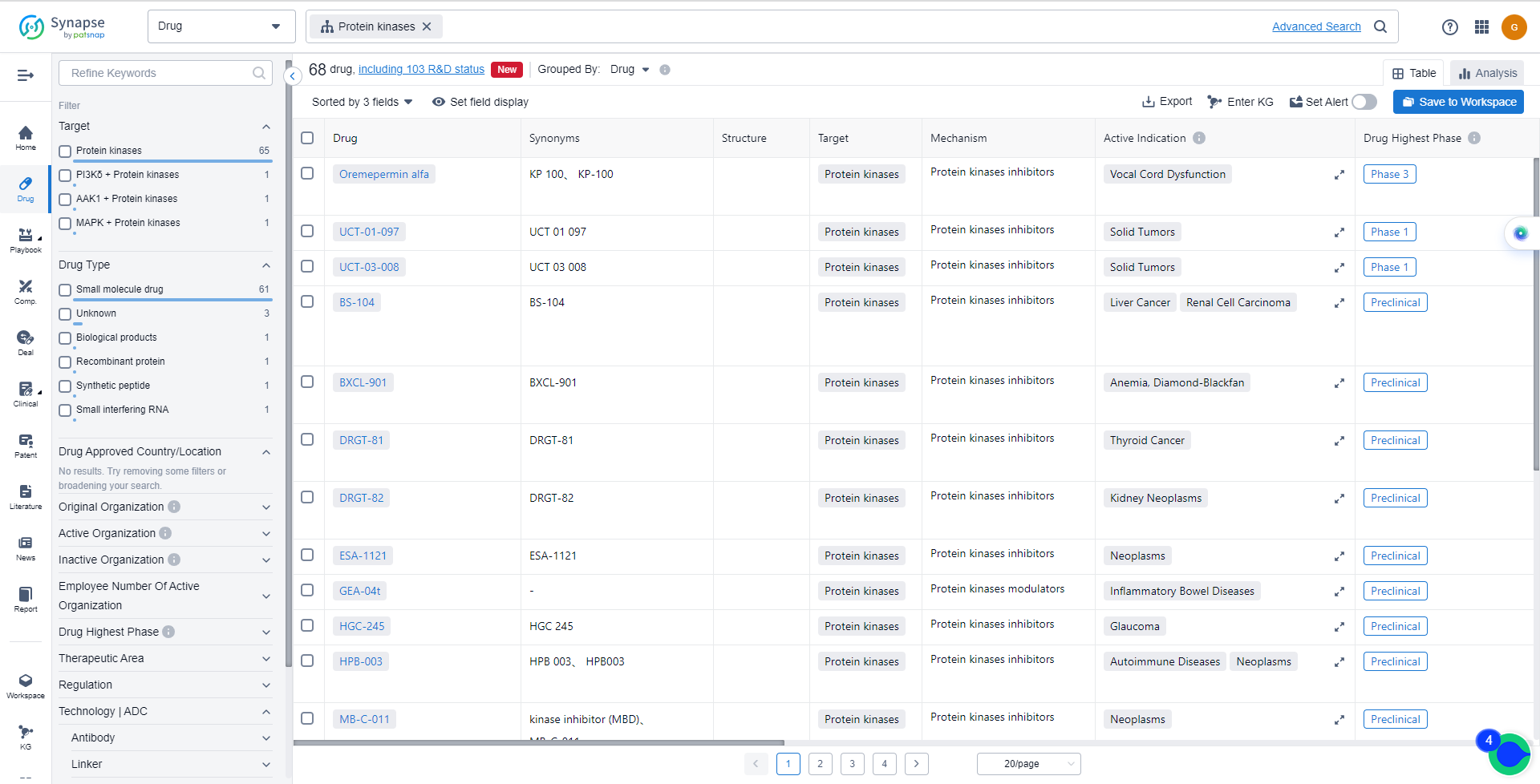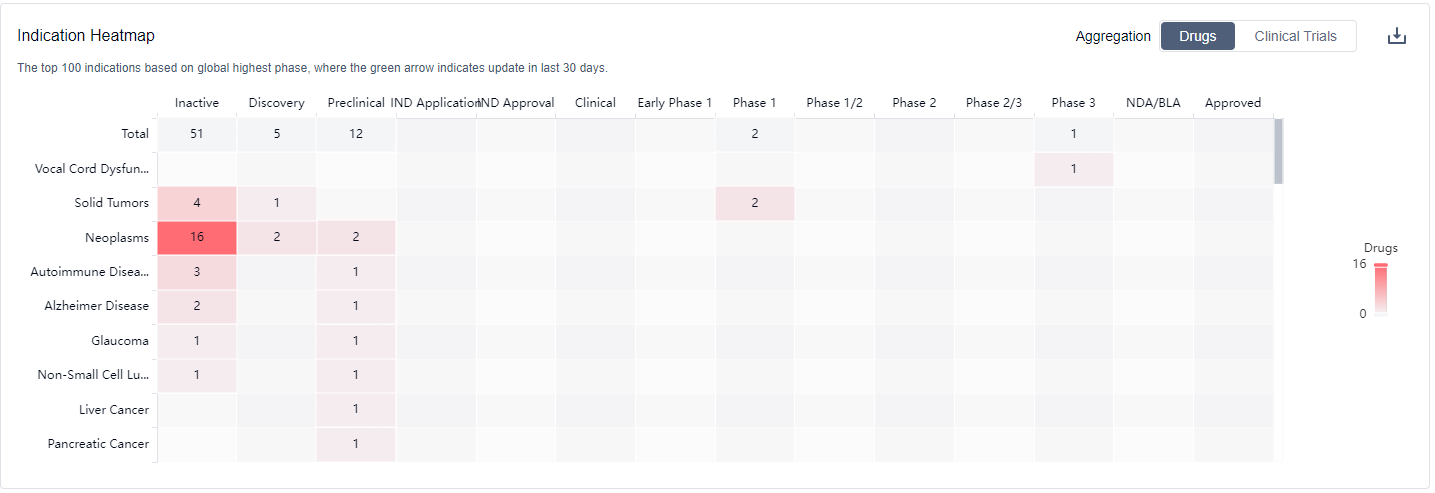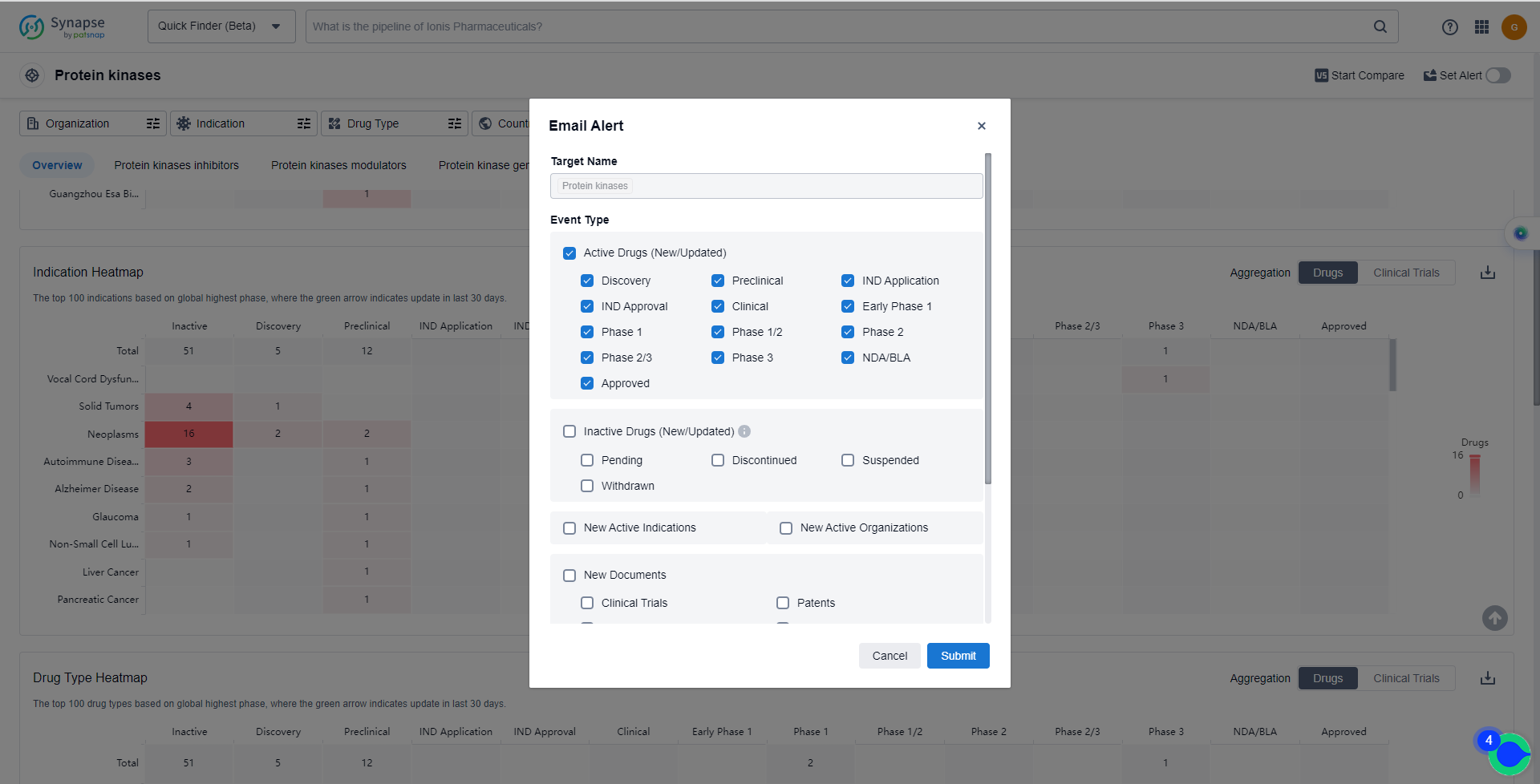Understanding Protein kinases Inhibitors and Methods to Keep Abreast of Their Recent Developments
Protein kinases are a crucial class of enzymes that play a vital role in various cellular processes within the human body. These enzymes are responsible for the transfer of phosphate groups from ATP molecules to specific target proteins, thereby regulating their activity and function. Protein kinases are involved in numerous signaling pathways, including those related to cell growth, proliferation, differentiation, and apoptosis. Dysregulation of protein kinases has been implicated in various diseases, including cancer, neurodegenerative disorders, and autoimmune conditions. Understanding the role of protein kinases and their signaling networks is essential for the development of targeted therapies and drug discovery in the pharmaceutical industry.
Based on the analysis of the target Protein kinases, it is evident that Kringle Pharma, Inc., 1200 Pharma LLC, and Voronoi, Inc. are among the companies showing promising growth and R&D progress. Indications such as solid tumors, neoplasms, autoimmune diseases, and Alzheimer Disease have received significant attention in terms of drug development. Small molecule drugs are the most rapidly progressing drug type, indicating intense competition in the market. Japan, the United States, and China are the countries/locations developing fastest under the current target, with notable progress in each. Overall, the competitive landscape for target Protein kinases is dynamic, with potential for future advancements and breakthroughs in the field.
How do they work?
Protein kinase inhibitors are a type of medication that specifically target and inhibit the activity of protein kinases. Protein kinases are enzymes that play a crucial role in cell signaling and regulation. They are responsible for adding phosphate groups to proteins, a process known as phosphorylation, which can activate or deactivate various cellular processes.
In the context of biomedicine, protein kinase inhibitors are used as therapeutic agents to treat various diseases, particularly cancer. Dysregulation of protein kinases is often observed in cancer cells, leading to uncontrolled cell growth and proliferation. By inhibiting specific protein kinases, these inhibitors can help disrupt the signaling pathways that promote tumor growth and survival.
Protein kinase inhibitors can be classified into different types based on their mechanism of action and target specificity. Some inhibitors target specific protein kinases, while others have a broader spectrum of activity. Examples of protein kinase inhibitors include imatinib, which targets the BCR-ABL kinase in chronic myeloid leukemia, and vemurafenib, which inhibits the BRAF kinase in melanoma.
These inhibitors have revolutionized cancer treatment and have shown significant clinical benefits in many cases. However, it is important to note that protein kinase inhibitors can also have side effects, as protein kinases are involved in various physiological processes. Therefore, careful consideration of the specific kinase target and patient characteristics is necessary when using these inhibitors in clinical practice.
List of Protein kinases Inhibitors
The currently marketed Protein kinases inhibitors include:
For more information, please click on the image below.
What are Protein kinases inhibitors used for?
Protein kinases inhibitors are used as therapeutic agents to treat various diseases, particularly cancer. For more information, please click on the image below to log in and search.
How to obtain the latest development progress of Protein kinases inhibitors?
In the Synapse database, you can keep abreast of the latest research and development advances of Protein kinases inhibitors anywhere and anytime, daily or weekly, through the "Set Alert" function. Click on the image below to embark on a brand new journey of drug discovery!








